Have you been inspired by DecoElian’s gorgeous patterns (and artwork, and home) to learn more about Palestinian tatreez? We’ve worked with Elian to collect a whole stack of resources for anyone wanting to dive deeper into this rich art form.
What is tatreez?
Tatreez is a traditional Palestinian form of counted needlework that uses crossed stitches and repeating motifs to tell a story, commemorate an event, or communicate an idea. Tatreez is typically done by women, with techniques passed down through the generations, and it is an integral part of Palestinian homes and life. You can find tatreez adorning clothing, furniture, housewares, linens, and many other objects.
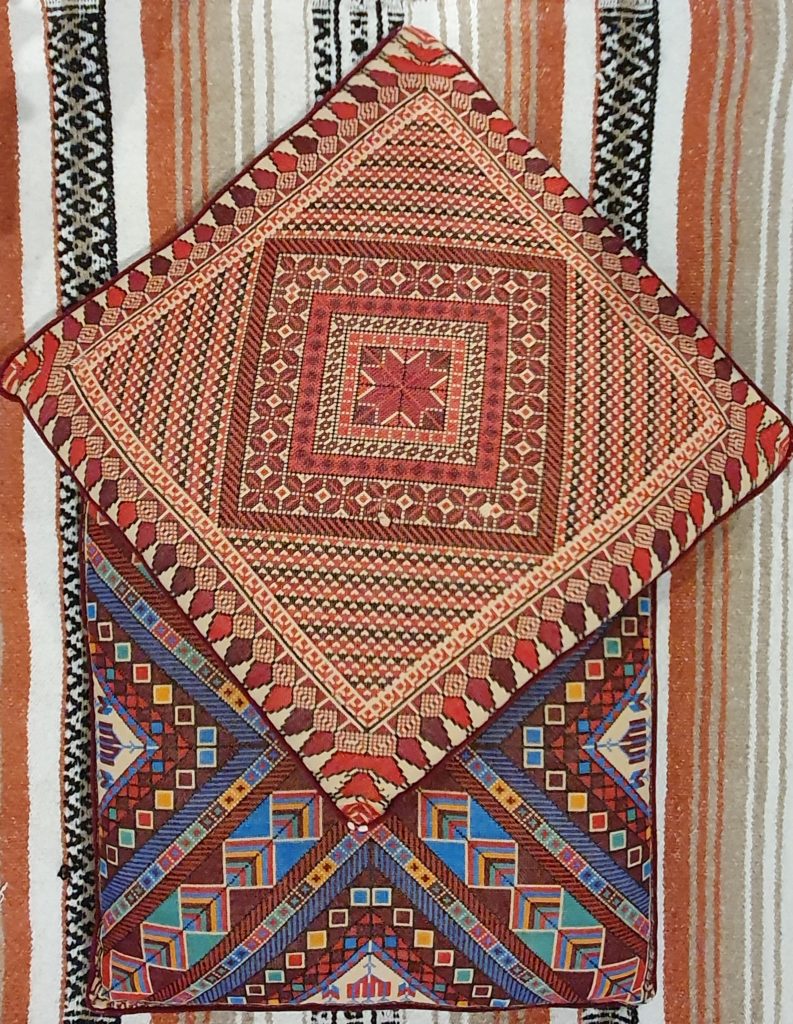
Tatreez designs use many motifs that are common throughout Middle Eastern and Mediterranean cultures such as birds, trees, stars, and geometric shapes. Over time, different regions of Palestine have developed their own unique styles and colors for those motifs, making it easier to identify where a piece was made.
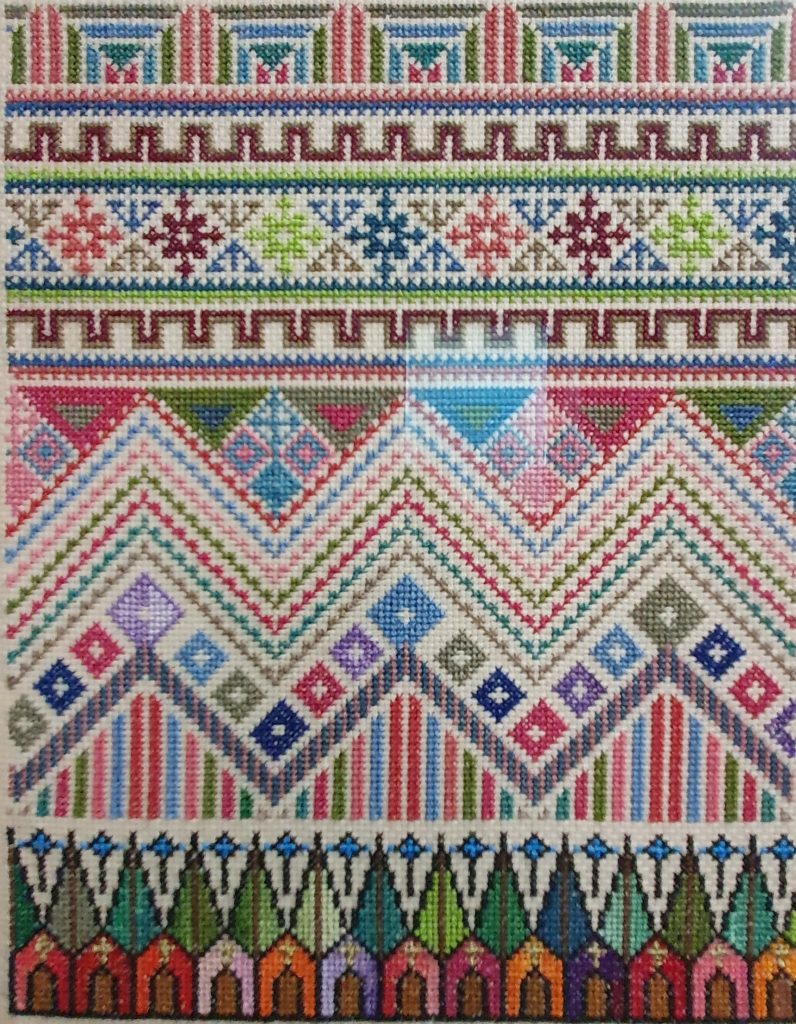
Unlike European cross-stitch, tatreez is stitched without a frame or hoop using the sewing method (where the needle is brought in and out of the fabric in one motion) rather than the stab-stitch method (where the needle goes up and down through the fabric in two separate movements), giving it a lovely nubbly texture. It is often stitched in strips or blocks that can be tiled to cover a larger area.
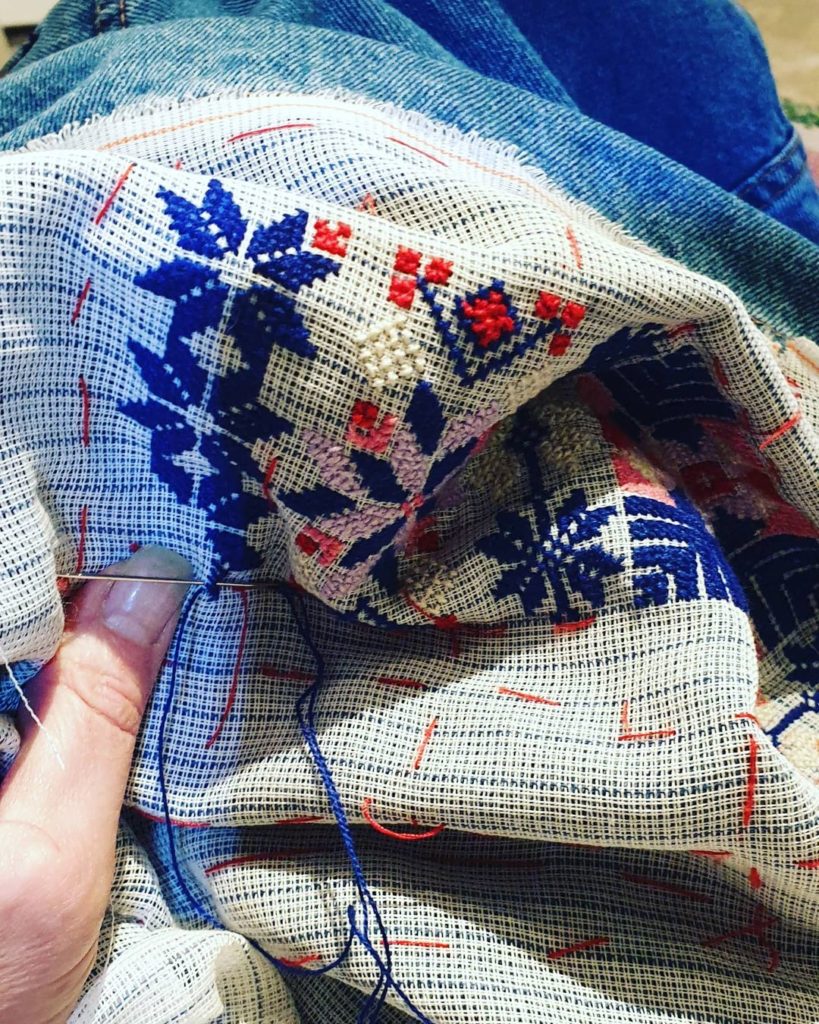
Because tatreez is so time-consuming and imbued with meaning, worn out pieces are rarely discarded. They are either mended and strengthened with more stitching, or cut up and repurposed into patchwork or smaller items.
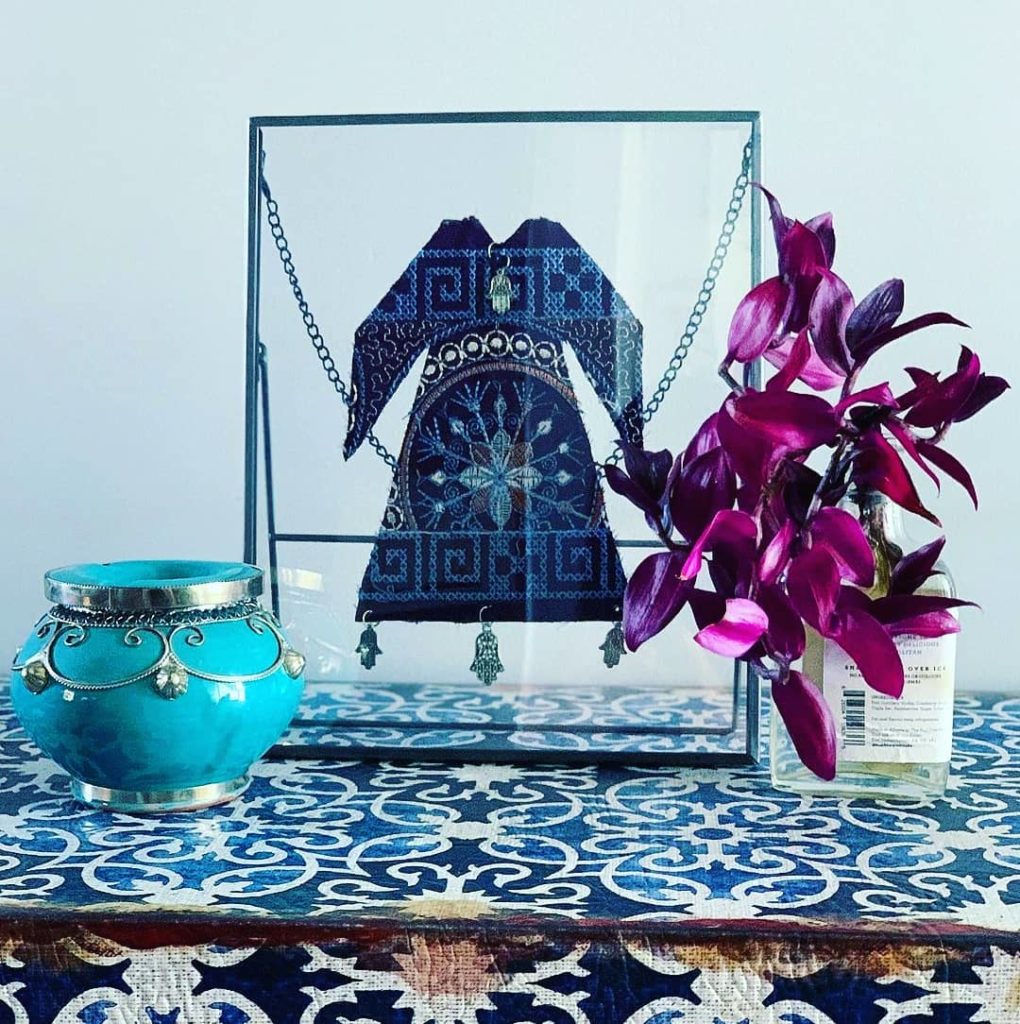
Classes
We recommend Wafa Ghnaim’s Tatreez & Tea. Wafa is a Palestinian American scholar, educator, and artist living in Washington, D.C., where she is a Palestinian embroidery instructor at the Smithsonian Museum, and an artist-in-residence at the Museum of the Palestinian People in Washington, D.C.
Tatreez & Tea offers classes in both technique and history.
Books
Tatreez & Tea by Wafa Ghnaim: dozens of patterns, recipes, technique instruction and history
Guide to the Palestinian Art of Embroidery by Nabil Anani & Suleiman Mansour (in Arabic): A guidebook that displays patterns and motifs of Palestinian cities and villages.
Jerusalem in Needlepoint and Embroidery by Ann Roth: showcases eighteen memorable sites of Jerusalem stitched in full color with descriptions and detailed patterns
The Art of Palestinian Embroidery by Laila Hussein Fakhri El-Khalidi: Samples of late-nineteenth to early-twentieth century Palestinian garments are considered to be representative of folk art at its best.
Threads of Identity by Widad Kamel Kawar: This book is a record of the 50 years Widad Kamel Kawar spent researching, collecting and preserving part of the heritage of Palestine.
Palestinian Embroidery Motifs: A Treasury of Stitches 1850-1950 by Margarita Skinner, Widad Kawar: This book is the first to document all the different motifs by origin and names used on the old dresses.
Traditional Palestinian Costume by Hanan Karaman Munayyer: A 560-page volume documenting the history and intricacies of Palestinian fashion, specifically the legacy of tatreez.
Websites
The Stories Tapestries Tell: Palestinian Embroidery in the West Bank (anera.org)
Wafa Ghnaim Uses the Traditional Craft of Tatreez to Preserve and Share Palestinian History | Vogue
Embroidery helps Palestinian women achieve independence (dw.com)
Institutions
Museum of the Palestinian People
Inspiration
Rulala: Selling tatreez products including bag straps designed by DecoElian
Naqsh Collective art & design studio
Playwright and actor Raeda Taha
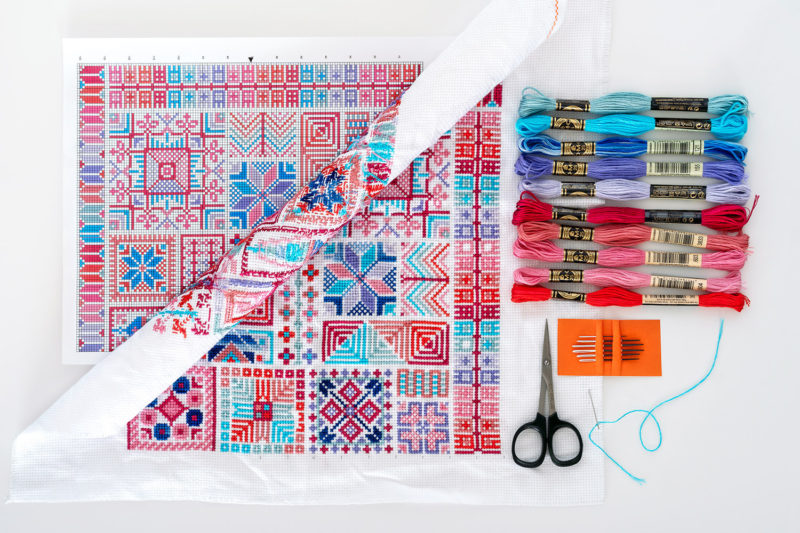
Maydel Comment Policy
All comments are moderated before they are posted. Irrelevant, offensive, or otherwise unhelpful comments will be removed.